|
Genres, Themes, Actors, and Directors:
- George Cukor Films
- Journalists
- Katharine Hepburn Films
- Spencer Tracy Films
- Widows and Widowers
Review:
Often cited as MGM’s variation on Citizen Kane (1941), this intriguing wartime mystery — scripted by Donald Ogden Stewart, who also wrote The Philadelphia Story (1940) — afforded Hepburn and Tracy an opportunity to radically diverge from the roles they’d played the previous year in Woman of the Year (their first joint film). In this second onscreen collaboration, they don’t play lovers per se (though romantic chemistry certainly lurks as a constant possibility). Instead, all narrative energy is focused on Tracy’s relentless attempts to uncover the truth behind Hepburn’s deceased husband’s legacy; Tracy repeatedly puts his life in danger (this is wartime, after all!), and we’re never quite sure whether Hepburn will emerge as friend or foe.
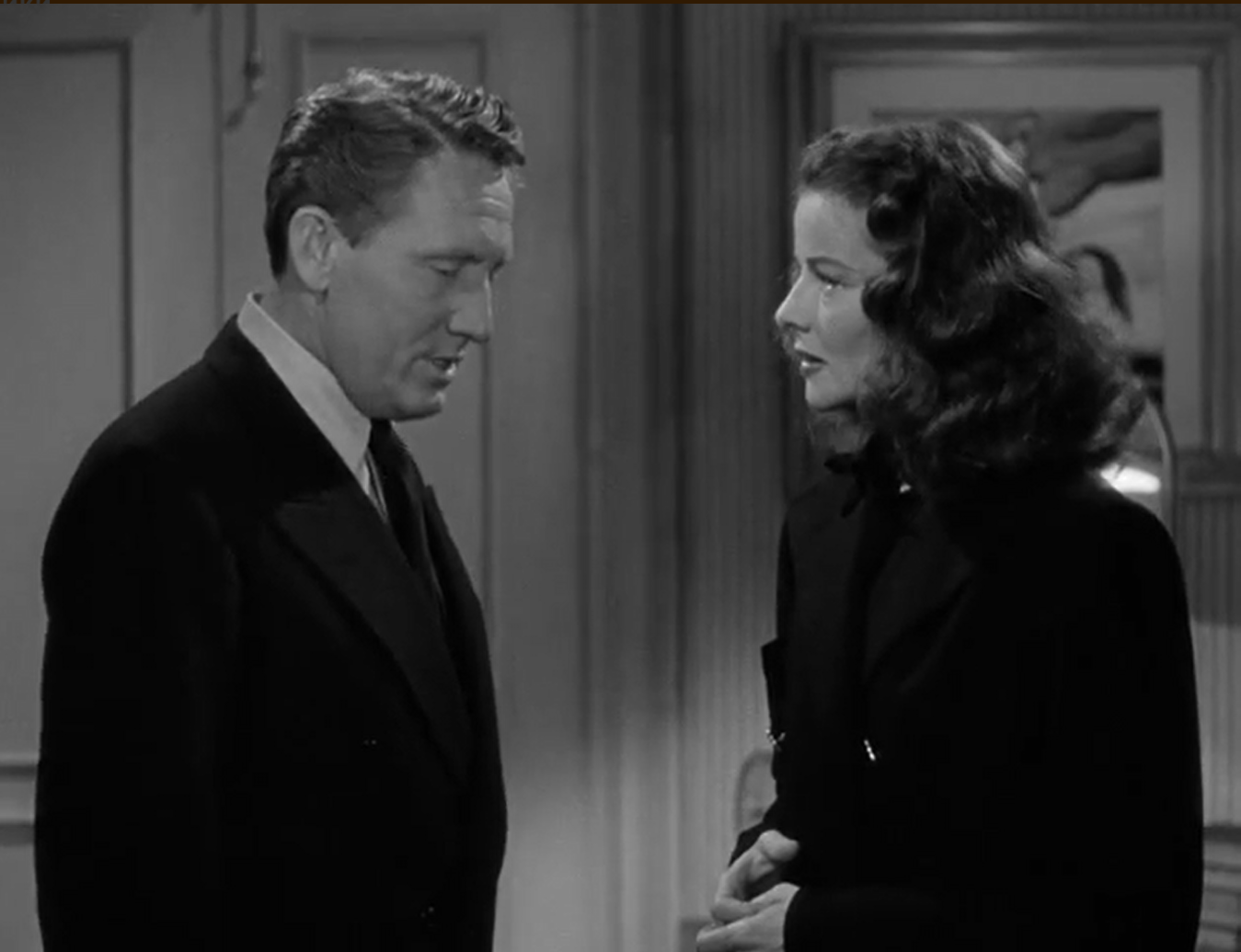
Atmospheric cinematography and fine performances (by leads and supporting actors alike) make this one worth a look, though it’s only must-see for Hepburn/Tracy completists. Don’t read too much about it online if you’d like to remain surprised by its outcome.
Note: Check out this Wikipedia entry for a detailed overview of the film’s complicated production history and mixed reception.
Redeeming Qualities and Moments:
- Katharine Hepburn as Mrs. Forrest
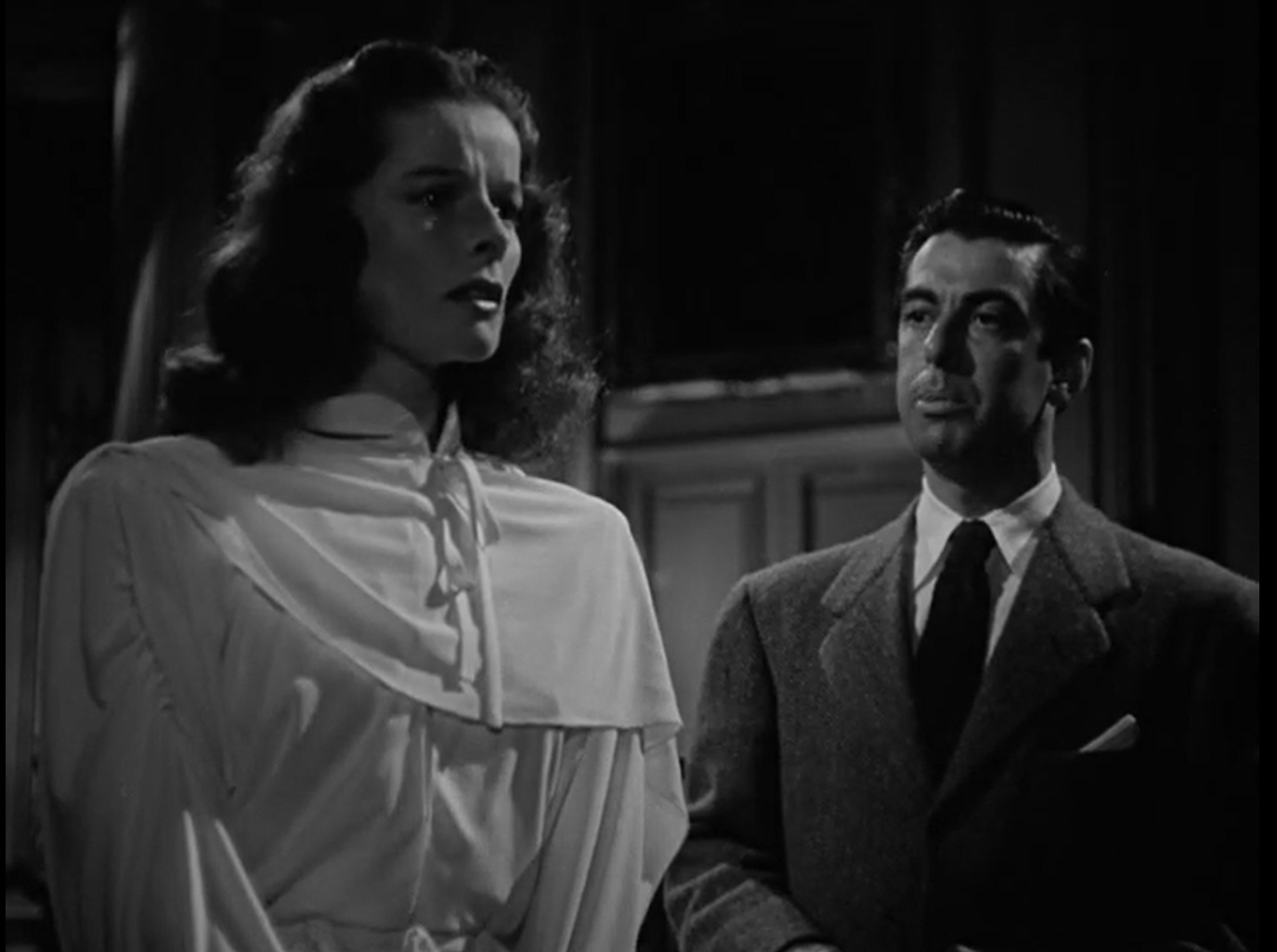
- Spencer Tracy as Steven O’Malley
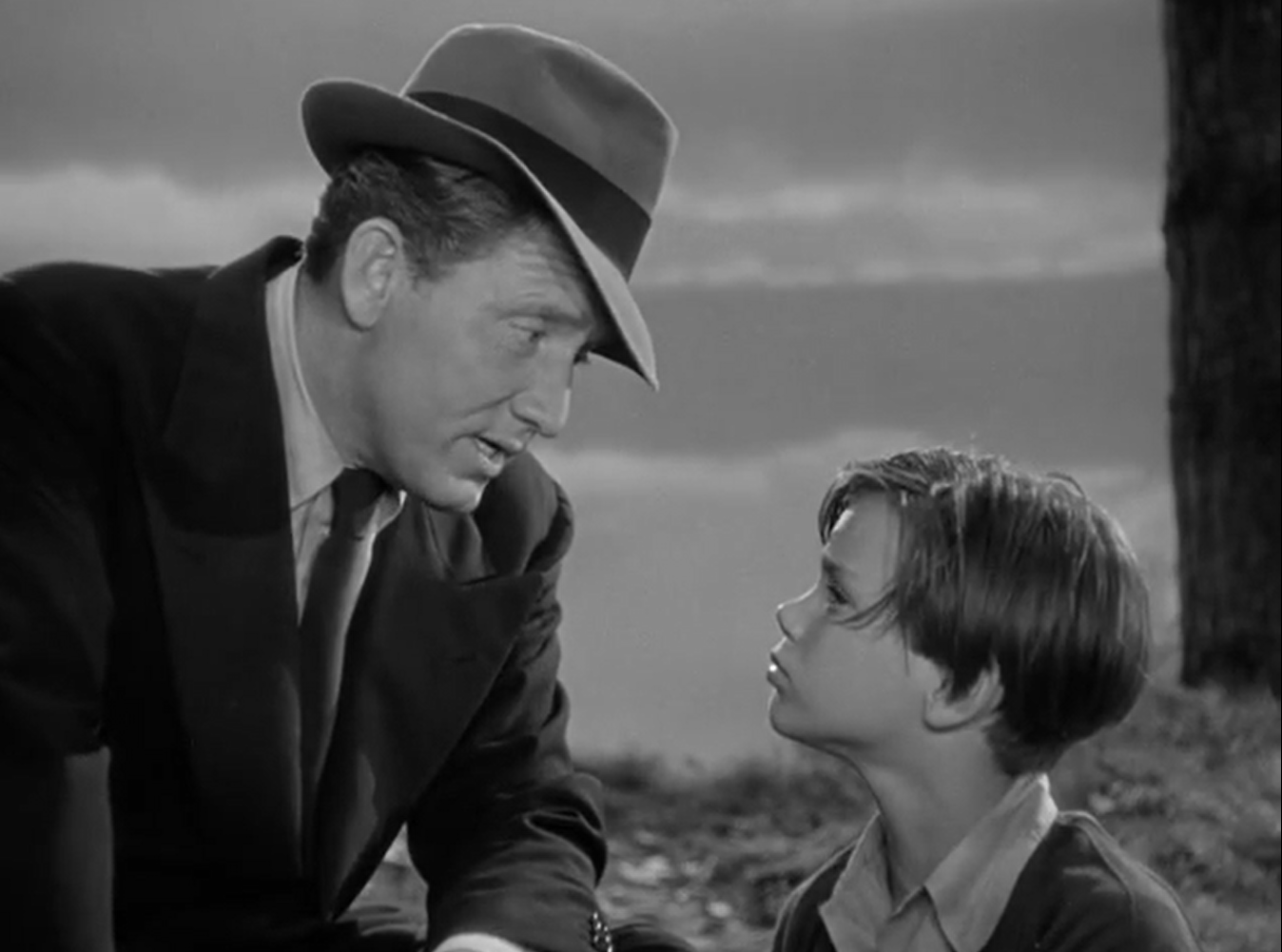
- Atmospheric cinematography
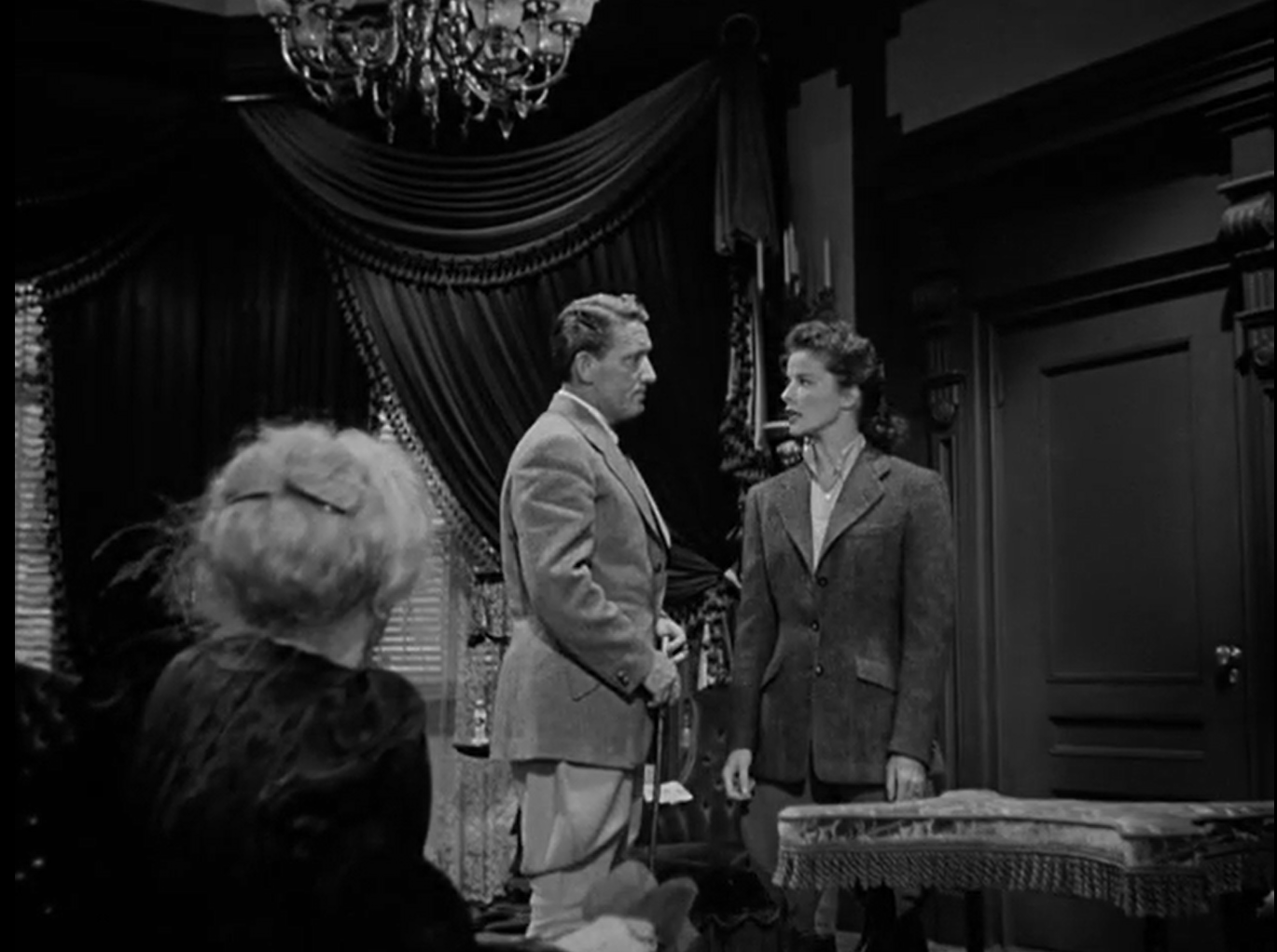
Must See?
No, though it’s definitely worth a one-time viewing.
Links:
|
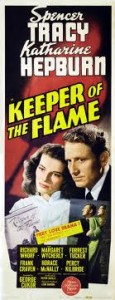




One thought on “Keeper of the Flame (1942)”
First viewing. Must-see, for its compelling story, solid performances and non-fussy direction by Cukor.
FFs who – as I did – read backstory information like what’s written at Wikipedia may find themselves hesitant re: a viewing of this film. In actuality, some of what has been written is misleading (i.e., the resemblance to ‘Citizen Kane’ is slight) and some of it is just plain wrong (i.e., Cukor’s statement that Hepburn falls into tricks from her RKO days couldn’t be more inaccurate – one only has to watch ‘Little Women’ to see that).
As we all know, if a certain film is not embraced by audiences upon release (although we’re told Radio City Music Hall ran it a month when most films at the time played there a week), that can say more about the audiences than about the film. Whatever figure in real life may or may not have influenced the writing of the novel, the story is not at all implausible (or as implausible as Cukor apparently considered it).
I found myself gripped from start to finish – and I didn’t allow myself to try and out-guess the storyline. Instead, I was caught up in the whole noir feel and let myself be tossed, as Tracy’s character is. I didn’t, however, particularly feel any potential love interest sparking between the two main characters – the situation (thankfully, if you ask me) doesn’t really allow for that anyway; what’s happening front and center is simply too messy for personal love interest to get a foot in the door here.
Films about uncovering lies happen to grab my attention easily, since that’s a major concern of mine in life. And I don’t think ‘KOTF’ takes any easy ways out. (It’s atypical of a Hollywood film of the period – mainly because an absurd, peripheral love angle *would* be thrown in ‘normally’ and inappropriately.)
Tracy and Hepburn actually turn in some of their best work together here, much to my happy surprise. And the rest of the cast delivers nicely as well, under Cukor’s confident direction – which allows us to guess about what is actually hidden or not among some of the supporting characters.
The film is beautifully shot in stunning black and white, Stewart’s script is smart and economic – and, overall, ‘KOTF’ seems just as relevant today…perhaps even more so.